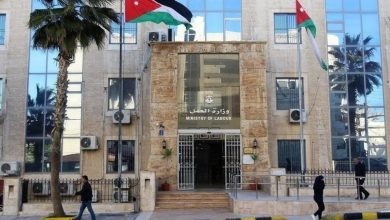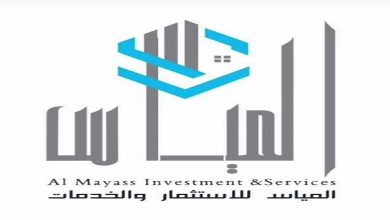International Agricultural Economist for Jordan Water Efficiency and Conservation (WEC)

The USAID funded WEC project in Jordan, implemented by Tetra Tech International Development is currently accepting expressions of interest for a International Agricultural Economist consultant. This position will require travel to Jordan. The main office is located in Amman.
Position Description/Summary: The purpose of this consultancy is to conduct a water valuation assessment of freshwater and treated wastewater used (and reused) in agriculture in the Jordan Valley. The assessment is expected to take a marginal cost approach, which assumes that freshwater used in agriculture generates substantial net benefits at the farm and crop level, but also has an opportunity cost in the form of forgone benefits from domestic or other uses. Differential prices shall be applied to irrigation water to account for water quantity and quality, taking into consideration the socioeconomic aspects. This study is aiming to support the Jordan Valley Authority (JVA) in:
- Preparing for the potentially anticipated additional land development in the Jordan Valley and suggesting a suitable water tariff that JVA might want to associate with the newly developed lands. 2.Preparing for any potential reform of the current regulations for irrigation water use, allocation, and distribution which is associated with existing developed lands in the Jordan Valley. 3.Handling the continuing increase of demand for irrigation water in the Jordan Valley due to, a) the shift from vegetables to perennial/permanent trees (resulting in increased summer water demand), b) emerging cropping patterns, and increased cropping intensities. 4.Adapting to the changing climate patterns and the potential associated changes to the irrigation water requirements, shift in growing seasons, and possible reduction in water resources availability.
The consultant will be required to work with a team of consultants with the International Agricultural Economist serving as Team Leader. The rest of the team will include a local agricultural economist and two research assistants. The ToR for the research assistants is to be drafted by the consultant and should be submitted during his first trip to Jordan.
The assignment will include two 1-2 week trips to Jordan and home work from country of record for a total of 50 estimated days over a period of 6 months.
Responsibilities
- Review previous water valuation study reports. Identify any gaps in the previous studies and propose solutions to fill these gaps. Conduct a stakeholder analysis. Provide methodology for this water valuation study including justification and highlight where the proposed methodology intersects and/or diverts from the methodologies previously used and explain why.
- Assess the marginal scarcity value of water for the different types of water resources available for irrigation in the JV, considering the opportunity cost of water.
- Estimates the cost of the JVA irrigation distribution and service delivery in the Jordan Valley from the existing network, the King Abdullah canal, and the other conveyance pipelines.
- Provide an estimate of the marginal value of groundwater (in the Jordan Valley including Wadi Araba) used in agriculture assuming groundwater has a significant cost of pumping and desalination; and has an external cost of resource deterioration (soil salinity, groundwater contamination risk).
- Study the current investment risk in on-farm irrigation of perennial tree crops with known intolerance to salinity (citrus, etc.) if freshwater availability is restricted.
- Identify key irrigation tariff reform elements which would transform current irrigation water charges into a dual water quality tariff system with separate charges for freshwater and blended water in irrigated agricultural production.
- Investment options are to be tested in the Jordan Valley Regions (North, Middle, South Shunah, Southern Ghors, and Wadi Araba area) under two scenarios: a) No constraints with water availability (provision of full water requirement); b) Constraints with water availability.
- Conduct spatial pricing schemes for irrigation water considering spatial variability within the Jordan Valley including Wadi Araba (traditional crops, potential [new] crops, regions [existing and planned], seasons, water quality, land quality, technologies, etc.) to provide different tariff structures.
- Identify/quantify employment effects and income generation of skilled and unskilled labor engaged in irrigated agriculture should proposed water tariff changes be implemented.
- The consultant is required to hand over all developed models and data used in the analysis of this study to JVA. These models are expected to be user-friendly models.
- The consultant is required to develop a user manual and provide three days of capacity-building training on how to use and update the developed model for JVA staff during the consultant’s second trip to Jordan.
- Any other related task that may emerge during the implementation of the activity.
Qualifications
- Graduate degree in Agricultual Economics or a related field, with focus on irrigation economics is required.
- 10 years of work experience in a relevant field.
- Good understanding of Jordan's agricultural sector, including the types of crops grown, the irrigation systems used, and the challenges facing farmers would be highly desirable.
- Knowledge of the Jordan Valley, its agricultural practices, and its cultural and political context would be highly desirable.
- Knowledge of the legal, regulatory, and policy frameworks that govern water usage in the Jordan Valley would be highly desirable.
- Familiarity with Jordan's water management policies and regulations also the roles and responsibilities of the different government agencies involved in water management.
- Ability to analyze complex data sets, identify patterns, and develop actionable insights.
- Experience working in cross-cultural environments, with a deep understanding of the local customs and norms of the Jordan Valley is preferable.
- Excellent leadership skills, including the ability to motivate and guide team members, delegate tasks, and communicate effectively with stakeholders.
- Fluent in English and have excellent verbal and written communication skills, with the ability to present complex ideas and data in a clear and concise manner to a variety of stakeholders, including policymakers, water managers, and farmers.




